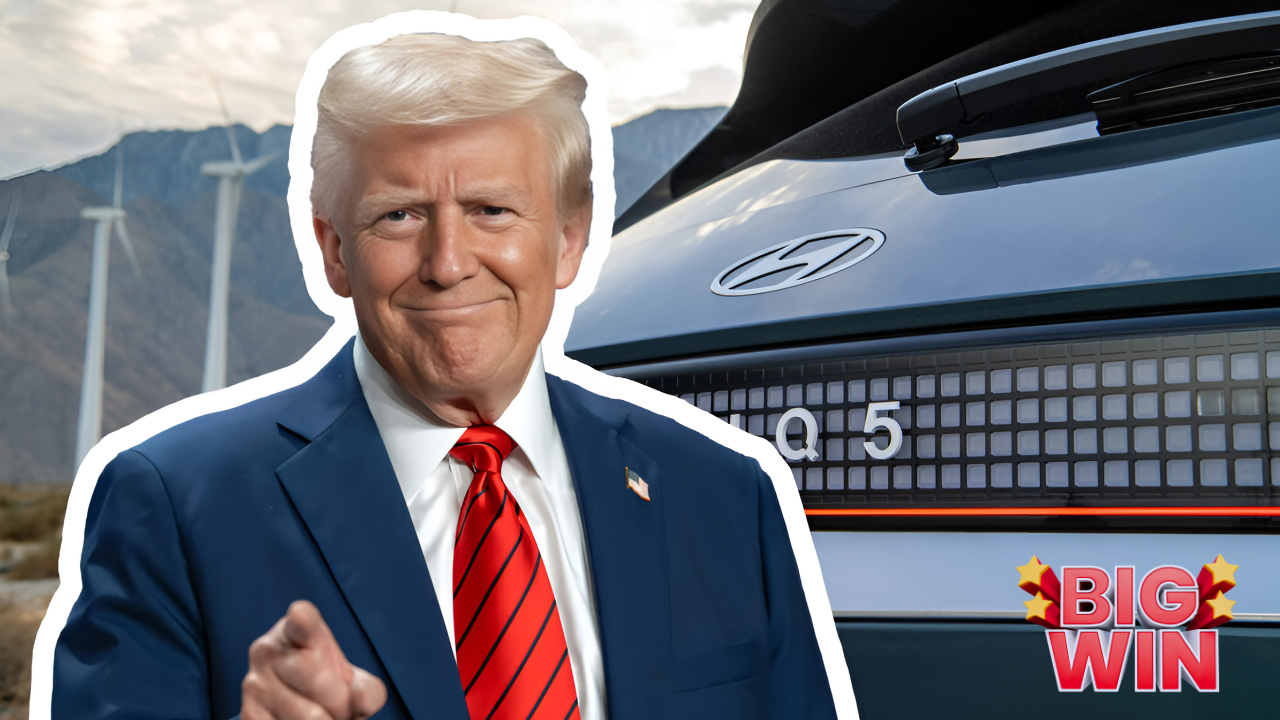In a landmark announcement made at the White House in March 2025, South Korea’s Hyundai Motor Group unveiled a sweeping $21 billion investment plan in the United States. The initiative, revealed alongside former President Donald Trump and Louisiana Governor Jeff Landry, marks one of the largest foreign investments in U.S. manufacturing in recent years. The strategic move is designed to expand Hyundai’s manufacturing footprint, strengthen supply chains, and insulate the company from potential U.S. tariffs on imported steel and vehicles.
This investment is a direct response to shifting global trade dynamics and the growing importance of localization in the automotive industry. By establishing new facilities and expanding existing ones, Hyundai aims to solidify its position as a leading electric vehicle (EV) manufacturer in the U.S., directly competing with industry giants like Tesla.
Key Components of Hyundai’s Investment Plan
1. New Steel Plant in Louisiana
A centerpiece of Hyundai’s investment is the construction of a state-of-the-art steel manufacturing facility in Louisiana, with a total investment of $5.8 billion. This plant will have an annual production capacity of over 2.7 million metric tons of advanced steel, specifically tailored for the automotive sector.
Job Creation and Economic Impact
The Louisiana steel plant is expected to create more than 1,400 new jobs, providing a significant boost to the local economy. The facility will supply high-quality steel to Hyundai’s automotive production sites in Alabama and Georgia, ensuring a steady, localized supply chain for critical raw materials.
Strategic Benefits
By producing steel domestically, Hyundai aims to reduce its reliance on imported materials, thereby mitigating the risk of tariffs and trade disputes. This move is seen as a proactive measure to navigate the complex landscape of U.S. trade policy, particularly as the Trump administration has signaled potential new tariffs on steel and automobiles.
2. Expansion of Automotive Manufacturing Capacity
Hyundai plans to invest $9 billion by 2028 to increase its U.S. vehicle production capacity to 1.2 million units annually. This expansion will be supported by the company’s existing facilities in Alabama and Georgia, as well as a new, $7.59 billion vehicle and battery manufacturing plant in Georgia.
Existing Facilities
-
Alabama: Hyundai operates a major manufacturing plant.
-
Georgia: Kia, Hyundai’s affiliate, runs a production facility.
-
Combined Capacity: The two older plants currently produce 700,000 vehicles per year.
New Georgia Plant
The new Georgia facility is set to add an additional 300,000 vehicles to Hyundai’s annual production capacity once fully operational. This plant will also focus on the production of batteries for electric vehicles, positioning Hyundai as a key player in the U.S. EV market.
3. Strategic Partnerships in Advanced Technologies
Hyundai is allocating $6 billion to strengthen collaborations with American companies in cutting-edge fields such as autonomous driving, robotics, artificial intelligence, and advanced air mobility. These partnerships are expected to drive innovation and accelerate the development of next-generation mobility solutions.
Focus Areas
-
Autonomous Driving: Development of self-driving technologies.
-
Robotics: Integration of robotics in manufacturing and logistics.
-
Artificial Intelligence: AI-driven innovations for vehicle safety and efficiency.
-
Advanced Air Mobility: Exploration of urban air mobility solutions.
Market and Industry Implications
Response to Tariffs and Trade Policy
Hyundai’s investment comes at a critical juncture, as the U.S. government has signaled potential new tariffs on steel and automobiles. By localizing production and sourcing, Hyundai hopes to avoid the financial impact of these tariffs and maintain its competitiveness in the U.S. market.
Trade Relations with South Korea
The U.S. maintains a trade deficit with South Korea, which has been a point of contention in recent trade negotiations. Trump has criticized South Korea for imposing higher tariffs on U.S. exports, while the South Korean government disputes these claims, citing the benefits of the free trade agreement between the two nations.
Impact on U.S. Manufacturing and Employment
Hyundai’s investment is expected to create thousands of jobs across multiple states, particularly in Louisiana, Alabama, and Georgia. The company’s focus on advanced manufacturing and technology partnerships will also help to foster innovation and skills development in the U.S. workforce.
Supply Chain Resilience
By establishing a domestic steel supply chain, Hyundai is reducing its vulnerability to global supply disruptions and trade disputes. This move is expected to enhance the resilience and efficiency of its U.S. operations.
Hyundai’s Vision for the Future
Hyundai’s $21 billion investment underscores its commitment to the U.S. market and its vision for the future of mobility. The company aims to be at the forefront of the electric vehicle revolution, leveraging advanced manufacturing, cutting-edge technology, and strategic partnerships to drive growth and innovation.
Leadership and Collaboration
The announcement was made by Hyundai Chairman Euisun Chung, who emphasized the importance of collaboration with U.S. partners and government leaders. This collaborative approach is expected to yield significant benefits for both Hyundai and the broader U.S. economy.
Frequently Asked Questions (FAQs)
1. How much is Hyundai investing in the U.S.?
Hyundai is investing $21 billion in the United States, including a $5.8 billion steel plant in Louisiana.
2. How many jobs will the new steel plant create?
The Louisiana steel plant is expected to create more than 1,400 new jobs.
3. What is the purpose of Hyundai’s investment?
The investment aims to expand Hyundai’s manufacturing capacity, localize production, and strengthen partnerships in advanced technologies to mitigate the impact of U.S. tariffs.
| Type | Description |
|---|---|
| Organization | Hyundai Motor Group |
| Investment Amount | $21 billion |
| Main Facility | Steel plant in Louisiana ($5.8 billion, 2.7M tons/year, 1,400+ jobs) |
| Automotive Plants | Alabama, Georgia (existing), new Georgia plant ($7.59 billion, 300K units) |
| Technology Focus | Autonomous driving, robotics, AI, advanced air mobility ($6 billion) |
| Job Creation | Thousands across multiple states |
| Strategic Goal | Localization, supply chain resilience, tariff mitigation |
Hyundai’s $21 billion investment in the United States represents a transformative moment for American manufacturing and the automotive industry. By building a major steel plant in Louisiana, expanding vehicle and battery production in Georgia, and forging partnerships in advanced technologies, Hyundai is positioning itself as a leader in the future of mobility. This bold move is expected to create thousands of jobs, strengthen supply chains, and drive innovation, while also helping the company navigate the complexities of global trade policy.

